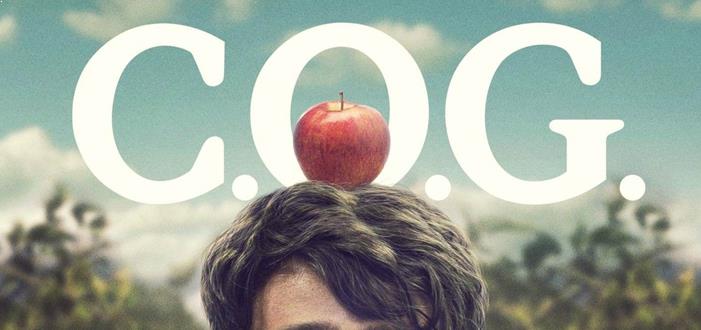
C.O.G
The joys of living a privileged life. Even amongst the absolute privilege of being an American, there is the relative privilege of having the luxury to choose to live as someone who can only subsist. Which is the choice afforded to the main protagonist, as he willfully abandons his world of ideas that may or may not correspond to reality, and instead decides to pick apples.
Yes, he believes himself to be better than his co-workers. And why not? He’s in graduate school at an Ivy League. Doesn’t that count for something anymore? Doesn’t that validate his worldly ability – or is it possible that his usefulness to the world rises no higher than fruit-picking in Oregon?
Of course he has access to better labor if he chose to. That isn’t the question. And that isn’t the question being raised with C.O.G. either. Yes, it self-deprecates the protagonist as he pretends to find himself. And in the end of the film he finally does. Maybe not entirely, but enough to validate his experiment. He gains a small-token of self-awareness: that he is full of shit.
It’s not truly enough for him to possibly overcome his prejudice towards the religious. He opens the film finding them utterly inferior, as really having more of an inferior worldview than he. And yet, in the vastness of his knowledge, what has he fostered? What have been his efforts at knowing? What is it good for? If he gained from his knowledge, would he crave a need to have picked apples? In a sense it is this insulation from reality that draws himself out. To live in struggle, with no credit cards and no phone. And as he faces reality for the first time in his existence, what does he find? When he is in need, a helping hand. From, yes, that which he found below him. The religious.
Could he not appreciate the resourcefulness of community in providing support to living life? He had nothing, no money, no feed, no shelter. And he was greeted with open hands. Predicated of course on the love of Christianity. He was brought into a Christian home, to get back on his feet. What particular morals would he find in the metropolis? A YMCA at best. Not a warm family.
He attends church out of obligation. And while the film wishes to expose the original helping hand as utilizing religion for his own ends at reconciling the chaos found within his own life, conclusively despising the protagonist Sam as Sam succeeds at a craft mentored by him, it also demonstrates the utility of religion Sam recognized. This utility has found itself redeemable throughout the course of the Abrahamic religions, even in its basest form which is the form that Sam recognizes. In other words, Sam does not actually feel God as much as he feels love from others. He does not believe in a world where a God exists as much as he believes in a world where people come together to support each other’s lifelong journey. He never had to live before. And the moment he did, he found religion.
Grade: B+

